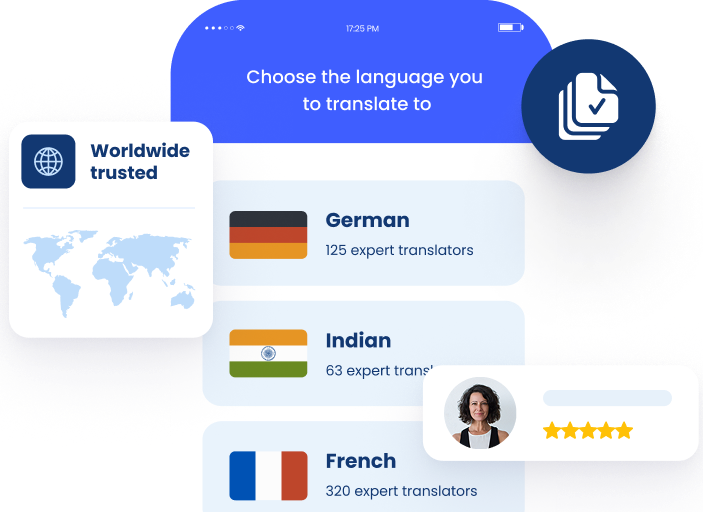Certified vs Automated Translation: When to Choose Human Expertise
In 2017, an SBS investigation into a contract between U.S. defence contractors and South Korea’s Defense Acquisition Program Administration found a mismatch in the Korean and English versions of the contracts. If the issue had been ignored, South Korea could have lost $15 million. Such errors often result from uncertified or unmanned automated translation services.
While automated translation is fast, it can overlook important aspects that certified translators consider. These include audience, culture, and context. Keep reading to learn how certified and automated translation compare.

The Rise of Automated Translation
Machine translation has existed for over 70 years, dating to the famous Georgetown–IBM experiment in New York 1954. At that time, this translation was slow, limited in vocabulary, and reserved for researchers.
Fast-forward to today, where we have automated translation tools that handle more vocabulary across a wide range of languages. Automated translation is now more efficient, too, with real-time and multi-modal translation capabilities.
Additionally, there is widespread access to automated translation. For instance, Google made it possible to translate web content using Google Translate. It detects the source language and automatically translates it to your language preference.
LLM-based translation tools are often trained on professionally translated texts. These tools are sufficient for basic translations. However, if you want to increase the reliability of their outputs, you must use Machine Translation Post-Editing (MTPE) techniques.
In MTPE translation workflows, human editors review the quality of the machine translations to correct any errors. This automated translation service is effective, but it lacks the credibility that certified translation offers.
Why Certified Translation is The Gold Standard for Accuracy
In business, healthcare, and legal sectors, you cannot afford to have incorrect or ambiguous translations. You need experts who understand that some sectors use specific words to mean specific things. Also, cultural context matters, and machine translation fails to account for these nuances. In such cases, only a certified translator can help.
Certified translations come with a signed statement from the professional translators guaranteeing accuracy. This statement means that the translated document matches the original document word for word.
These translators have extensive industry experience and are certified by recognized professional bodies such as the ATA.
The benefit of working with certified translators is that they comply with regulations governing data access. For example, certified health translators must comply with HIPAA regulations when handling data. This ensures data privacy and security.
Consider sensitive documents such as immigration paperwork. Here, you need human translation expertise provided by certified translators. Besides, certified translators are accountable for any mishaps arising from incorrect translation.
For some, certified translators are a luxury. However, governments, courts, and embassies require certified translations to ensure that translated documents hold the same legal value as the original documents. Automated translations cannot provide such a level of security and guarantee.
When to Choose Human Translation Over Automation
Automated translation has its merits, especially when the repercussions of translation errors are minimal. However, human translation becomes essential when the risks are legal disputes, financial losses, or reputation loss. This applies to fields such as law, academia, and medicine.
Ensuring Error-free Medical Documents
The healthcare sector has strict regulations for patient safety. If medical documents are translated by a machine that does not guarantee the highest level of accuracy, patients’ lives will be endangered.
Human translators understand the risk, which makes them accurately translate health records, care plans, and health histories. Using certified medical translators assures you of greater accuracy and reliability of the translations.
Avoiding Losing Context in Academia
The specificity and technicality of academic material need to be intact regardless of the language they are translated into. Automated translations can easily lead to lost context if they fail to consider some aspects in translations. The consequences of such blunders are felt across the field and passed on to industries.
Certified academic translators understand terminology, historical contexts, relevance, and other nuances machines miss. This makes them indispensable in academic translations.
The Limitations of Automated Translation
Comparing certified and automated translation reveals the strengths and limitations of both approaches. Although automated translation is a low-effort approach, it has significant implications.
Lack of Linguistic Expertise
Automated translation tools lack the linguistic expertise to extract contextual meaning from certain words. When words are translated without the deeper meaning, they will be misinterpreted by the target audiences. Certified translators rely on their linguistic experience to translate ambiguous words.
Restricted Use Cases
As mentioned repeatedly, certified translations are non-negotiable in sectors such as legal and healthcare. Given the demand for translation in these fields, this limits the use of automated translation.
Potential for Data Breaches
Machine translation tools can’t guarantee privacy or data protection, unlike certified human translators who handle your data securely and confidentially. Machines upload your data to their servers to process and translate it. In case of a breach, this data can be compromised, and no one will be held liable.
Lacks Tone Sensitivity
The tone of a message controls how the target audience receives it. Automated translations may sound robotic and fail to adapt the original tone in the translated material. This common challenge leads to misinterpretations, contextual errors, and missed intent.
Request a Certified Translation Today

Take advantage of our leading certified translation services and experience why certified translation is superior to automated translation. Our translators are experts in their fields, with native fluency in multiple languages and accreditation by top agencies. We guarantee affordability, fast, and 100% accuracy across over 200 languages. Contact us now for a free quote on your next project.


